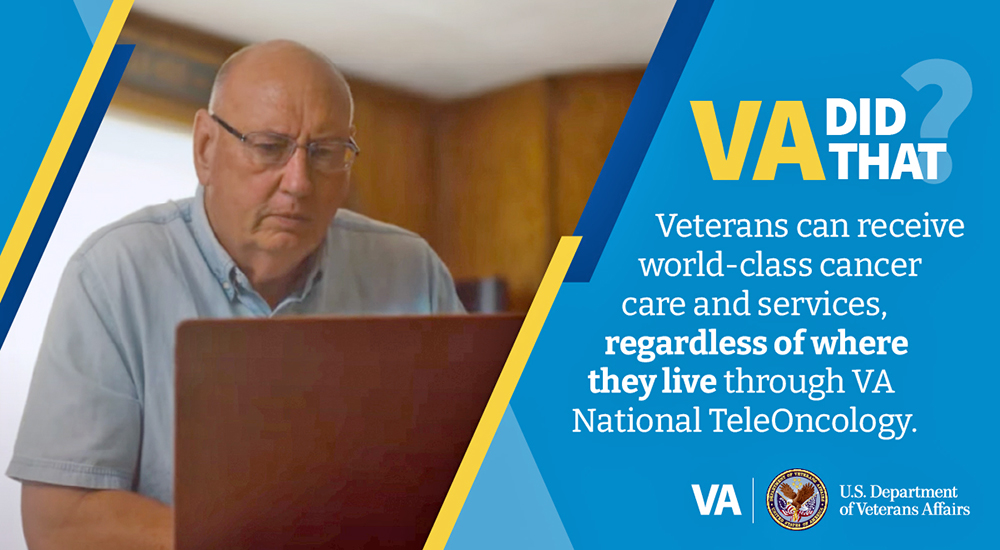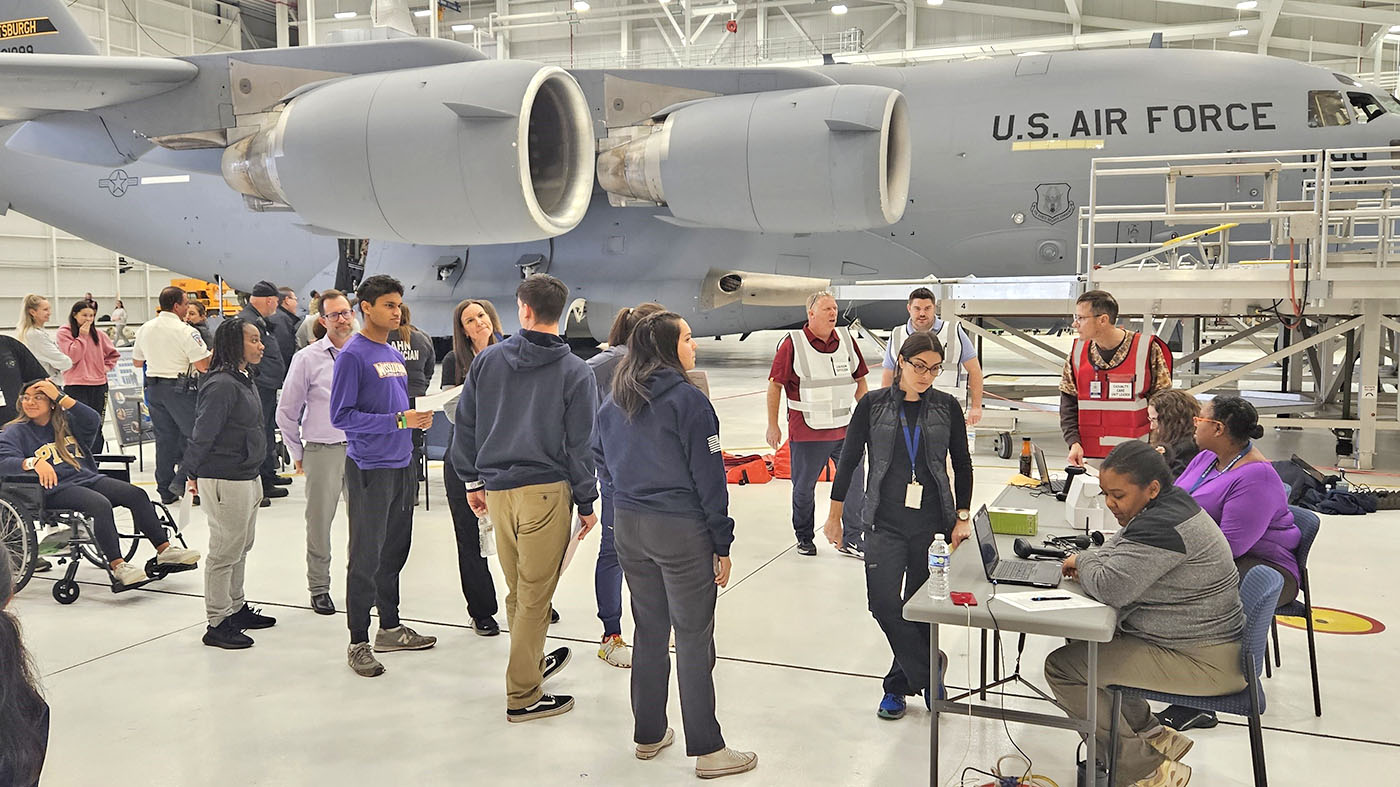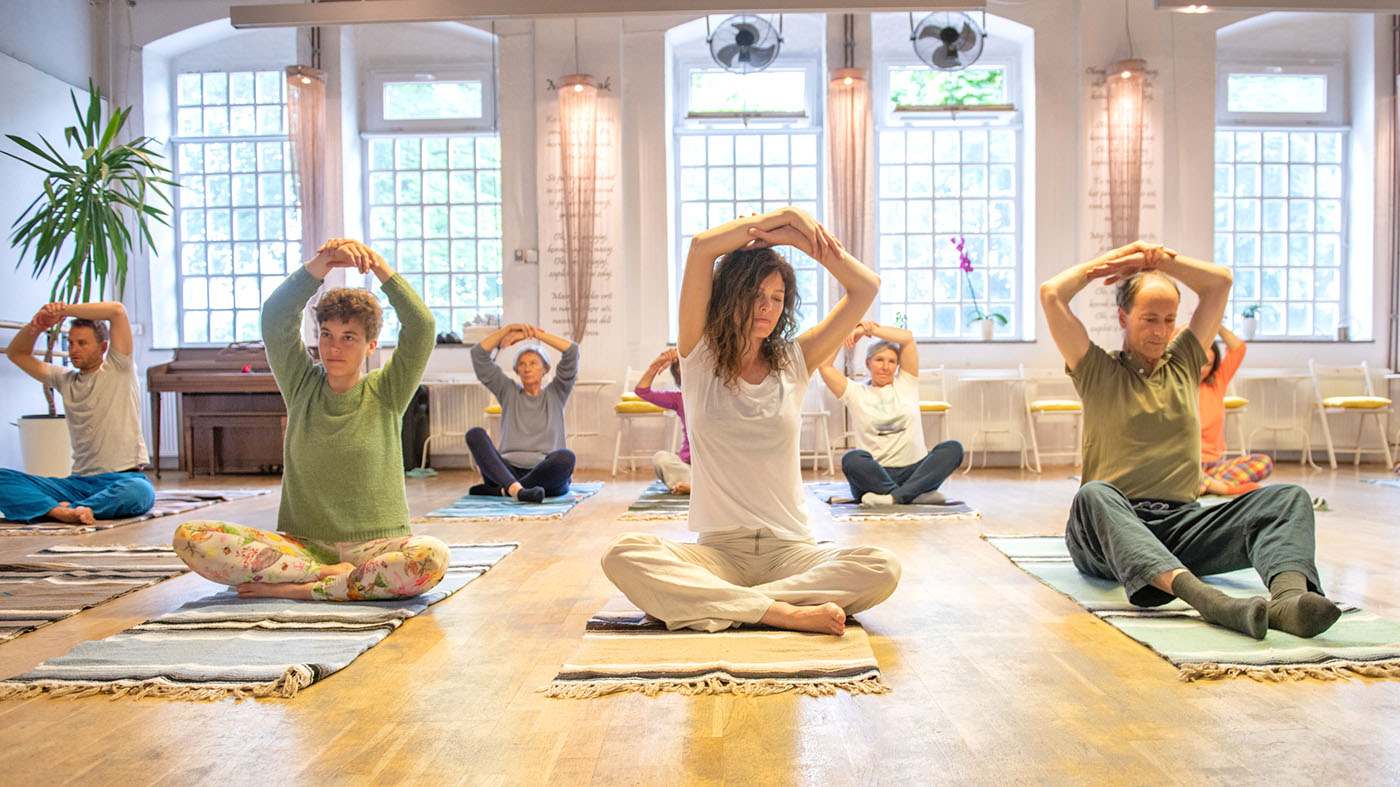VA’s National TeleOncology (NTO) allows Veterans to receive world-class oncology care and services, regardless of where they live.
With 22 specialized oncologists and 23 TeleOncology sites around the country (with dozens more coming online), Veterans who have limited access to specialty care can now receive treatment from an expert in their type of cancer without spending time, money and energy traveling long distances.
Dr. Thomas D. Rodgers is one of those specialists. An oncologist working out of the Durham VA Medical Center, he uses TeleOncology to be with patients throughout their entire cancer treatment.
“As an oncologist, one of my big charges is to provide care to everyone, not just the few who can make it to large places like Durham,” Dr. Rodgers said. “Getting a tremendous diagnosis like cancer and then being told that you have to go, get in your car, take your family and drive 300 miles, it’s just impossible.”
“You need to have faith and trust in your doctor.”
“To meet them where they are for their care is one of the amazing things about the National TeleOncology service.”
One of his patients was Air Force Veteran Jackson Gerrard, who lives six hours away in West Virginia. He had myelodysplastic syndrome, a form of blood cancer.
Gerrard tells his story on this video.
Gerrard said that being diagnosed, “was like running into a brick wall. But after talking to Dr. Rodgers, I found out it can be cured and decided to try treatment.”
He drove 15 minutes to the Clarksburg VA Medical Center to meet with Dr. Rodgers for his appointments via clinical video telehealth (CVT). A VA nurse was in the room with him. Thanks to the short commute, his wife was also able to attend appointments.
“You need to have faith and trust in your doctor,” Gerrard said. Through NTO, Dr. Rodgers provided him with steadfast care as a hematologist, a specialist in his type of cancer.
TeleOncology connects Veterans with high-quality cancer treatment
Like Gerrard, many Veterans, especially those in remote areas, choose NTO because it connects them with high-quality cancer treatment. It provides access to specialists in their type of cancer (including rare ones). It also enables family and friends to attend appointments easily.
Veterans use TeleOncology in two ways: through clinical video telehealth (like Gerrard) or via an internet-connected device in their own home through VA Video Connect. Working shoulder to shoulder with various partners, TeleOncology delivers screenings, diagnostics and treatment for medical oncology, including rehabilitation and palliative care.
Connect to NTO. Talk to your provider. For more information on how VA expands access and reduces barriers to cancer care for Veterans across the nation, please visit www.cancer.va.gov, or contact cancer@va.gov.
Topics in this story
More Stories
Air Force Veteran Shireta Jones overcomes obstacles with support from VA and adaptive devices to continue her passion for pickleball.
Pittsburgh VA and its partners practice relocating hospitalized patients during disasters and public health emergencies.
VA and Veterans Yoga Project are working together to make more Veterans aware of the benefits of yoga while offering more classes.






